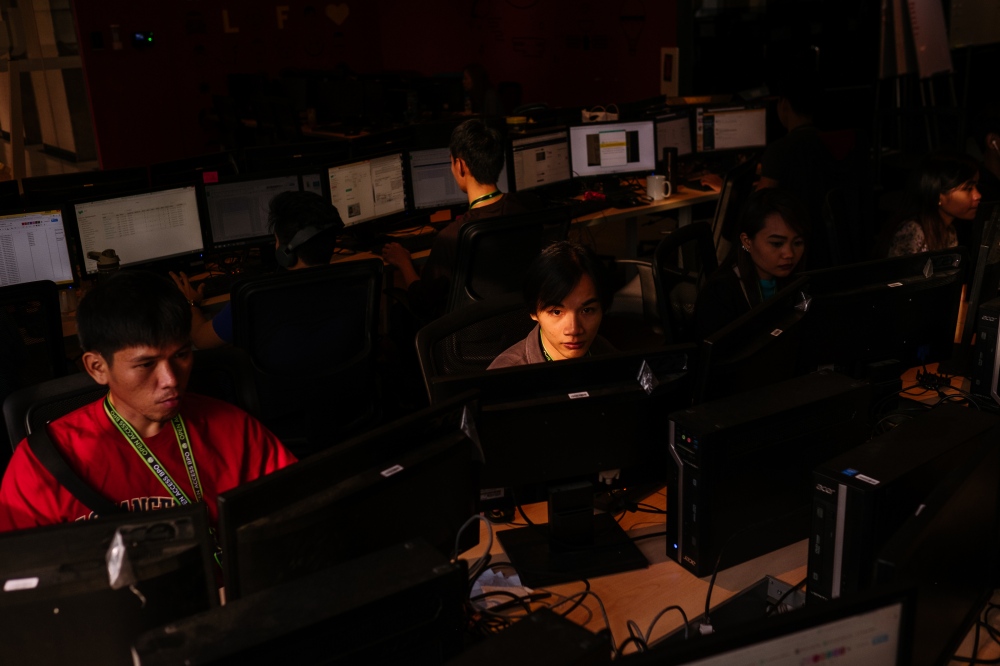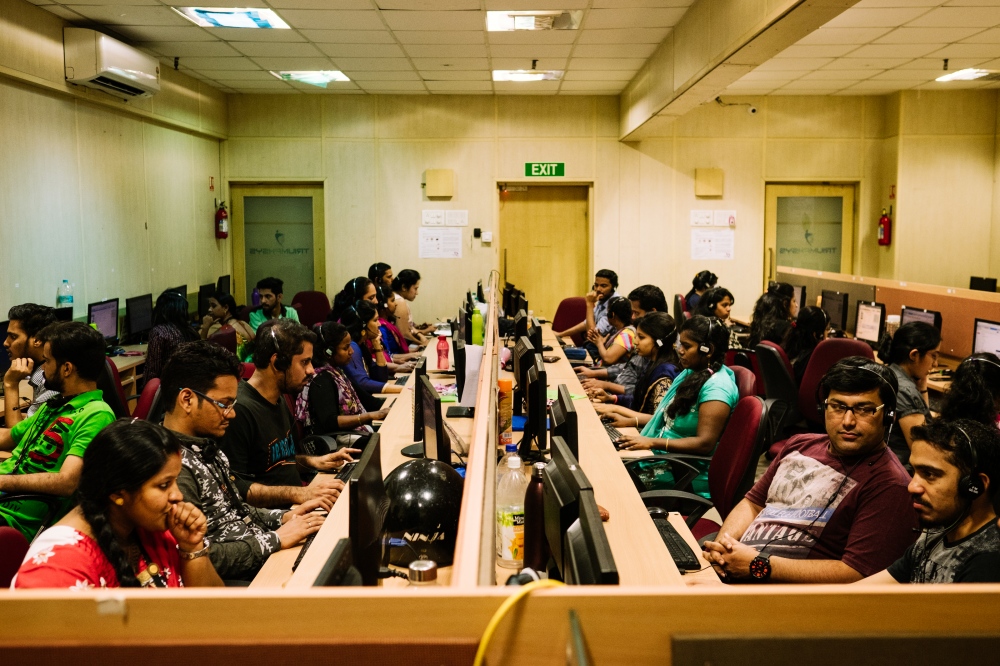“How can I help you?” is a photo documentary project on call centres and the daily life of their employees, focused on the two biggest markets in this industry, India and the Philippines. Together they employ more than two million people who are supporting clients in the USA, UK and Australia.
With this project I want to reveal the lives of these faceless people with whom we may communicate on a daily basis without knowing much about them. In India and in the Philippines, call centre workers mostly work on night shifts due to the time difference to the countries they are in touch with. Therefore, they are immersed in a westernised culture. They work 6 days a week, 10 hours per shift. Aged between 18 and 35, these workers are mainly students or recent graduates who could not find a job in their field. Nonetheless, there are also people in their 40 Ìs who have developed a career in this business.
The “boom” of call centres in both countries has changed the prospects of the younger generations. Now they earn enough money to live their own lives, look after themselves and help their families.
India joined this industry in the mids 90 Ìs and quickly became the world leader. Despite earning as little as 100 to 500 USD per month, to work in a call centre is seen as a good opportunity, in a country with more than 1.7 billion people, where it is difficult to find a job and the wages are low.
In the Philippines, that overtook India in 2011 and became the new leader, an agent earns from 200 to 1000 USD/ month. This can be as twice or three times more than a nurse working in a Hospital, for instance. Unlike India, youngsters in the Philippines consider starting these jobs at an early stage without finishing their education. This could bring in the future to a shortage of professionals in vital jobs such as doctors, lawyers or engineers.
The business is helping to boost these economies, but there is a question mark about the future due to the technological development, which is likely to replace the human work. In addition, these companies are always willing to find cheaper outsourcing work and keep moving from country to country.
They are now behind the phones but one day they will be replaced by the same technology. I want to leave a legacy and to give a face to those workers who - in a western view - have only a voice.
























